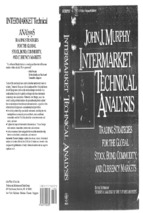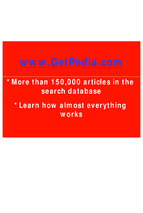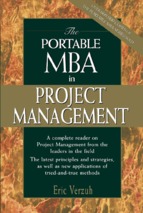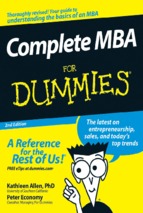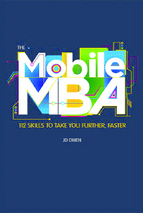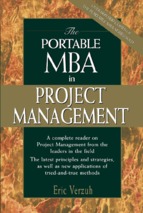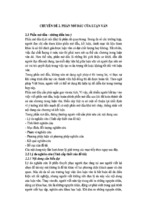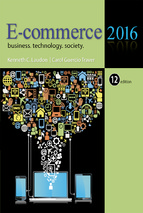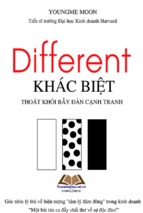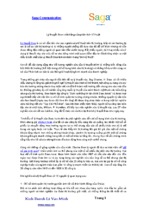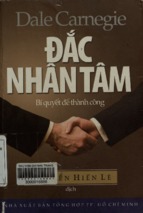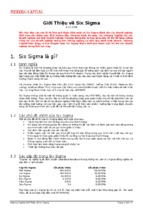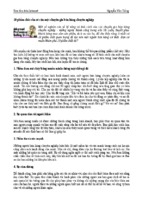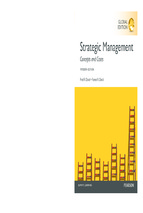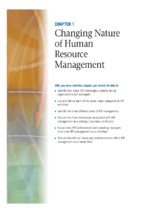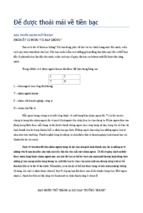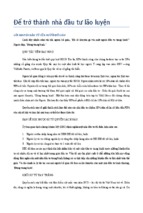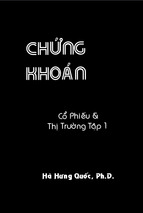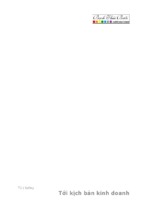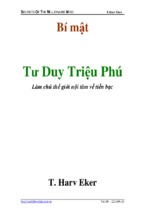f~1 .06
l>~ I
ALSO BY MARK LEONARD
MARK LEONARD
Why Europe Will Run the 21'[ Century
WHAT DOES
CHINA THINK?
PUBLlCAFFAIRS
A Member of the Perseus Books Group
'1 ~~7050
Copyright © 2008 by Mark Leonard
Published in the United States by PublicAffairs'fM, a member of
the Perseus Books Group.
First published in Great Britain in 2008 by Fourth Estate,
an imprint of HarperCollinsPublishers.
Map © HarperCollinsPublishers, designed by HL Studios, Oxfordshire.
All rights reserved.
Printed in the United States of America.
No part of this book may be reproduced in any manner whatsoever without
written permission except in the case of brief quotations embodied in critical
articles and reviews. For information, address Public Affairs, 250 West 57th
Street, Suite 1321, New York, NY 10107.
PublicAffairs books are available at special discounts for bulk purchases in
the U.S. by corporations, institutions, and other organizations. For more
information, please contact the Special Markets Department at the Perseus
Books Group, 2300 Chestnut Street, Suite 200, Philadelphia, PA 19103, call
(800) 255-1514, or e-mail
[email protected].
Text set in Minion with Trade Gothic display
Library of Congress Control Number: 2008921270
ISBN: 978-1-58648-484-2
10987654321
To Gabrielle
CONTENTS
Acknowledgements
1
Introduction: The Liberation of Thought
5
Chapter One: Yellow River Capitalism
19
Chapter Two: Democracy in the Clouds
51
Chapter Three: Comprehensive National Power
83
Conclusion: China's Walled World
115
Dramatis Personae
135
Notes
143
Index
153
u
R
s s
\
,)
(
/ . - .... _-\_._._-/
..•,/".-
,
~'-'
')
"
~./.
/'
,../
~
\'-'~'--'
I
~
. i' ..
~i ~
Q:l
I . 0
' ,..i
./
.;..'1. . .,_._._._
\
.
"
GANSU
/
)
'
rl
\:.
. /'.
/
... "t'
___.1. __ •
o " ~'
u
u
~,
o '"
-.I.'
~
~.'
\.
'"
\-
:"
,
IlEJ/I~G\
Be.Uin~·. . "~ 'J'
),
\
r,
' ...--,
,
1-
:
__' , , _
HEBEl
\
;
QIN GHAI
')
')
\
J
'\
....
- - .... --~ ---.---
'"''''''
~(',') "
. '-',
-- ,
·'-·..r..,··" I
... ,." ..v Ii' I' 4..,......... ' , ~ ""' - t '
~'''',
........L....~:~...L
,r ,I/ Ul-tliTAN ,)
r'
I,
> ./-.,.
·co
/ '"
,
'....... -----..~\,
N
D
' j J
(
~.J
t~
('-.
\ 'J
...
Nunjie
....
~
, ~~'.,
.>
\
HEN~N « ~NHUI
\
---
'
- -~.
HUBEI
~"$e R;.. ~, .._ _ )
, /
""\
GlIIZHOU
{1
).,
9
BURMA
EAST
CHINA
5£ 4
~
'---.' -'C_,.(.
Buyun.
f
HllAN
1 - ~Hl)
~
•
/ .L
lQ >, "
Chongtw~n .., \ :.Y~-Vr,~
-'~ , ""
~
-
1
ZHElIAN
(
,,~tj
HU NAN
-
PACIFIC
i .J
f,
r
r'
500
, miles
(
~-."- -
A
SHAANXI
\>i ngchang e /
)
TIBET
L""
,;
'<:
"'~/ '·A'--"·,,J,
H
\
,
,)!
)
C~
....·
r~
-
L
~
".,
:.. -' - ")
. ' ... .. ' _..\"r'::il!\NGS
,.'
,,~ - ....
- .:§~c:f'>..~~.
I,.J
1.., .. ... _ ... ...:
r-'
'-c
1--'
)
l. //..,..
\
(
;
)-..
___.~
JA PAN
....
r
I
- '"
SEA OF
u .. . .
.... ,- r'\ . ., '....
~
~
~~
'/~
,,--....
,
J':.:
\)
o,
A
L
.--.J
-':
•
/)
1
o
c;
,J
co
XINJIANG
() ,
. '.
M
\....
.--~
(~
'
r-)
.
.7
. I.r. )i
I.~~ .::.-~,
R
)
.,
~-'\
E
,
~ /.~
.J'
T
"
/'
\
.
",
I
i.)
~, ......(..•.1
\~ .
\
u
()
',--."""'"
L~ .r ·-·\,
_J'
/ ..r-(.
"'\
/'~',!,- '/
/ '--'~'\
.~.Y'" ,
,,
,,
)
A
OCEAN
(
&'~1
SO UTH
CHINA
SEA
ACKNOWLEDGEMENTS
After September lIth there was a heated debate about Eur"..."""
relationship with America. The Western world appeared to
into two competing blocs representing different
order: Americans from Mars; and Europeans from Venus. The
United States, on the one hand, wanted to use its military might to
remain the only superpower - building a liberal world order in its
own image. The European Union, on the other hand, represented
a system where security was guaranteed through political and
economic interdependence, and disputes were settled through law
rather than power.
It was this intellectual ruckus that inspired me to write my first
book, Why Europe Will Run the 21't Century, which argued that the
birth of the European model is an achievement of historical signif
icance. I set out a vision - which I still believe in - of how Europe's
model could become the most influential system in the world
by the end of the century. Today, that split between Europe and
America has been complicated by a starker ideological competi
tion that pits both the EU and the US against alternative systems
which hail from beyond the west. The Russian credo of 'Sovereign
Democracy' and the Islamist dream of theocratic rule already pose
a serious challenge, even if they may yet turn out to be temporary
phenomena. But it is China, with its vast size, its economic
dynamism, and the political skill of its leaders that is the most
serious contender for global leadership in the long term.
Although dozens of books have been published about China's
Mark Leonard
Mat Does China Think?
rise, most authors treat it as an economic, political or military bloc
rather than seeing it as a powerhouse of ideas that could influence
our world. They have little to say about China's intellectual debates,
or the ideological competition they might pose to the European
and American world-views. My work tries to make sense of these
ideas which European policymakers will need to understand if
they want to successfully promote their own world-view.
This book, like my previous one on Europe, would not have
come into being without the support of my agents Maggie
Pearlstine and Jamie Crawford. But the book's completion is a
result of the vision of my editor at Fourth Estate Mitzi AngeL
Together with her talented colleague Robin Harvie, she has been
my creative super-ego, driving me to write and to do better with
her unusual mix of intellectual brilliance, sensitivity, and patience.
I am indebted to many Chinese thinkers, writers and officials
who have taken the time to talk to me, to share their writings,
and debate ideas with me on my trips to China. They are too
numerous to mention, so I will single out a few who have been
especially helpful: Chu Shulong, Cui Zhiyuan, Fan Gang, Fang
Ning, Feng Zhongping, Gan Yang, Han Deqiang, He Zengke, HS
Liu, Hu Angang, Huang Ping, Jiang Xiaojuan, Jin Canrong, Kang
Shaobang, Lai Hairong, Li Daokui, Li Dianxun, Li linghua, Li
Junru, Liu Jianfei, Ma Zhengang, Pan Wei, Pan Yue, Pang
Zhongying, Qin Gang, Qin Hui, Qin Yaqing, Ruan Zongze,
Shen Dingli, Shen Dong, Shi Yinhong, Song Xinning, Wang Hui,
Wang Jisi, Wang Shaoguang, Wang Xiaodong, Wang Yiwei, Wang
Yizhou, Wu Baiyi, Wu Jianmin, Xianglin Xu, Yan Xuetong, Yang
Jemian, Yang Yao, Yu Jiafu,Yu Keping, Yu Yongding, Zha Daojiong,
Zhang Weiying, Zhao TingYang, Zheng Bijian, Zhou Hong. I am
particularly grateful to my friends at the Chinese Academy of
Social Sciences for hosting me on multiple trips to Beijing, and for
welcoming me as a visiting scholar in the summer of 2006.
I have been inspired by the work and assistance of a number of
veteran China-watchers including William Ehrmann, Aaron
Friedberg, Joseph Fewsmith, Christopher Hum, Rod Macfarquhar,
Lolita and Mattei Mihalca, James Miles, Eberhard Sandschneider,
Ian Seckington, and David Shambaugh. Rem Koolhaas opened
my eyes to a different China. Volker Stanzel has been a constant
guide, a generous host and a wise counsel - convening fascinating
lunches and dinners and frequently helping me make sense of my
findings on trips around the country. Robert Kagan and Gary
Schmitt were fascinating companions and sparring partners on
trips to Beijing, Shanghai and Taipei. At various times and in their
various ways, friends have given me critical support or ideas in ways
they may not even be aware of. I should thank in particular Rob
Blackhurst, Richard Gowan, Toby Green, Phoebe Griffith, Sunder
Katwala, Adam Lury, Geoff Mulgan, and Shauna McAllister.
Much of the research for this book was conducted when I was
working at the Centre for European Reform. I am grateful to
Charles Grant, an intellectual companion and an exemplary
employer for supporting this book from the outset, accompanying
me on several trips to China and allowing me to take a sabbatical
to work on the book. The German Marshall Fund paid for and
organized several trips to China, and funded my work at CER. Its
president, Craig Kennedy - a mentor and consiglieri - immediate
ly understood the potential of the project, and once again gave me
the personal and professional backing to see it through. At the
Open Society Institute, three inspirational figures - Mabel van
Oranje, Aryeh Neier, and George Soros have been generous with
support and advice, and patiently allowed me to finish a draft of
the book before setting up the European Council on Foreign
Relations. At the European Council on Foreign Relations, Fran<;ois
Godement and John Fox, two brilliant observers of Chinese
foreign policy, both read the text and gave me valuable feedback;
2
3
Mark Leonard
while my PA Katherine Parkes was a tower of strength throughout
our eventful launch period.
Zhang Feng was a model research assistant and sounding board,
ferreting out material, translating multiple articles and books, and
keeping me in touch with the hottest ideas in Chinese academia
and policy circles.
Three people introduced me to China on my very first trip and
have been my guides ever since. Joshua Ramo, a soul-mate and
inspiration, first got me hooked when he allowed me to publish his
brilliant paper on the 'Beijing Consensus' when I was running the
Foreign Policy Centre. He has been incredibly generous with
precious time, contacts, and ideas. Poppy Sebag-Montefiore made
China trips fun as well as interesting. More than anyone else, she
gave me an insight into everyday China, introducing me to her
incredible friends, and letting me stay whenever I needed in her
Beijing apartment. Andrew Small has been a true partner in crime,
accompanying me to remote backwaters in the Chinese country
side, feeding me with reading materials on a bewildering array of
topics, reading all my drafts, and helping me make sense of a whole
new world.
My parents frequently put their own projects on hold to help
me
through my latest crisis, humbling me with their generosity
and intelligence. Their example makes everything seem possible,
and their recognition makes it all worthwhile. My sister Miriam
and her husband Phiroze have been there for me at all the crucial
moments, giving me moral support, access to university archives
and inspiring me with their own scholarship. But it is to my wife,
Gabrielle, who lived on the frontline of this project for longer than
either of us ever imagined, that this book is dedicated: If not for
you my sky would fall, rain would gather too. Without your love
I'd be nowhere at all, I'd be lost if not for you.
Mark Leonard, November 2007
Very few things that happen during my lifetime will be remem
bered after I am dead. Even 9/11 or the Iraq War - events which
transfixed us, took innocent lives and decided elections will
gradually fade until they become mere footnotes in the history
books. But China's rise is different: it is the big story of our age
and its after-effects could echo down generations to come. Like
the rise and fall of Rome, the Ottoman Empire, the British Raj
or the Soviet Union, it is the stuff from which grand narratives
are wrought. For the first time since the end of the Cold War, a
non-Western power is in the global premier league: China has
4
5
INTRODUCTION
The Liberation of Thought
China's very existence creates a problem for Western accounts of
world history. The Bible didn't say anything about China. Hegel
saw world history starting with primitive China and ending in a
crescendo of perfection with German civilization. Fukuyama's
'end of history' thesis simply replaces Germany with America.
But suddenly the West has discovered that in the East there is
this China: a large empire, with a
history and glorious past.
A whole new world has emerged.
Gan Yang, 'The Grand Three Traditions in the New Era:
The Integration of the Three Traditions and the
Re-emergence of the Chinese Civilization'
Mark Leonard
What Does China Think?
joined the United States and Europe as a shaper of world order.
China's scale is mesmerizing; its vital statistics are almost
impossible for us to grasp. With one in five of the world's popu
lation, China's entrance into the global market place has almost
doubled the world's workforce. Already, half of the world's clothes
and footwear have a 'Made in China' label in them, and China
produces more computers than anywhere else in the world.
China's voracious appetite for resources is gobbling up 40 per cent
of the world's cement, 40 per cent of its coal, 30 per cent of its steel
and 12 per cent of its energy. China has become so integrated into
the global economy that its prospects have immediate effects on
our everyday lives: simultaneously doubling the cost of petrol
while halving the cost of our computers, keeping the US economy
afloat but sinking the Italian footwear industry.
The speed at which this is happening is even more shocking.
Building construction in Shanghai takes place at such a breakneck
pace that the city's maps need to be rewritten every two weeks.
A town the size of London shoots up in the Pearl River Delta every
year. In the run-up to the Olympics, China is building enough new
roads to go four times around the world. China has brought 300
million people from agricultural backwardness into modernity in
just thirty years - a process of industrialization that took over 200
years in Europe. If current growth trends continue - which is
admittedly a big 'if' the People's Republic could overtake the
USA to become the world's biggest economy well before 2050.
But this focus on scale, speed and measurable statistics is blind
ing us to a deeper question: will China's rise change the nature of
our world? We are getting used to China's growing influence on
the world economy - but could it also reshape our ideas about
itks and power? China is the first country since the end of
the Cold War with the ingenuity, scale and global exposure to
shape the world in its image. Its gargantuan domestic problems
are driving it to seek a new model of globalization. And its huge
size means that other economies and nations connected to it
from America to Zimbabwe will need to reformat their own
systems to cope with China's new ideas about economic develop
ment, political reform and world order. China is starting to think
for itself. And, because of its stunning economic record, people
around the world are starting to listen, and copy the Chinese model.
This story of China's intellectual awakening is much less well
documented than the now familiar tale of China's economic
revival. Although we obsessively study the ideas of different fac
tions in America's intellectual life the Neo-Cons, the assertive
realists, the religious right - how many of us can name more
than a handful of contemporary Chinese writers or thinkers?
Who knows what future they dream of for their country, or the
world it is shaping? Europeans and Americans, in particular, are
ill-equipped to answer these questions. Since the time when
French and British missionaries first travelled to the East, the West
has focused on what it wanted from China and how to convert
the Chinese to a Western way of life. People wrongly assumed
that as China grew richer, it would also become more like us.
6
7
The accidental sinologist
China crept up on us slowly in the 1990s. For most of that decade,
it was the preserve of regional specialists or fantasists from the
business world who dreamt of making vast fortunes, but usually
lost even more. However, at some indeterminate point around
the turn of the millennium, China stopped being a subject
specialists. From my vantage point as director of a foreign policy
think-tank in London, I remember noticing how - all of a sudden
almost every global challenge had acquired a Chinese dimen
Mark Leonard
sion: from African development to the reform of the United
Nations system, the Doha global trade talks to the Iranian nuclear
programme, genocide in Darfur to oil prices in Venezuela. China
was no longer a big country with which one could choose to
enjoy trading or diplomatic relationships; instead it was starting
to become part of the furniture of global politics, a universal
factor with which we are forced to contend. In terms of political
influence China had stopped being like other large developing
countries such as India or Brazil. It was turning into something
quite new: a miniature USA. I suddenly knew that without under
standing China, it would be impossible to understand world
politics.
I will never forget my first visit to the Chinese Academy of
Social Sciences (CASS) in Beijing. I was welcomed by Wang Luolin,
the academy's vice-president (whose grandfather had translated
Marx's Das Kapital into Chinese), and Huang Ping (a former Red
Guard who was then co-editor of the intellectual journal Dushu).
Sitting in oversized armchairs - arranged in parallel against the
wall in order to protect the backs of the hosts and guest of honour
from enemy attacks - we sipped ceremonial tea and introduced
ourselves. 'The Foreign Policy Centre: I began, 'is four years old.
We have around twenty staff, we publish twenty-five policy
reports a year and host around fifty seminars: Wang Luolin
nodded politely and smiled before delivering his killer blow: 'CASS
is the highest academic research organization in the fields of
philosophy and social sciences. We have fifty research centres that
cover 260 disciplines and sub-disciplines, and 4,000 full-time
researchers.' As he said the words, I could feel myself shrink into
the seams of my vast chair: Britain's entire think-tank community
is numbered in the hundreds; Europe's in the low thousands;
even the think-tank heaven of the USA cannot have more than
10,000. But here in China, a single institution - and there are
8
What Does China Think?
another dozen or so other think-tanks in Beijing alone - had 4,000
researchers. I discovered later that even people at CASS think that
many of these researchers are not up to scratch, but the raw figures
were enough to intimidate me in that early meeting.
Wang Luolin's one-upmanship on size was just the beginning of
a well-worn strategy designed to bewilder and co-opt outsiders. We
spent many hours engaged in polite conversation without touching
on the specifics of our co-operation. These elaborate courtship rit
uals, seemingly devoid of substance or direction, have been honed
over centuries to nullify Western negotiating strategies, and bind
foreigners into Chinese ways of doing things, creating webs based
on personal contact rather than contractual obligations. At the
beginning of the trip, I had hoped to get a quick introduction to
China, learn the basics, and go home. But after spending what felt
like weeks in these introductory meetings, sitting around sipping tea
and exchanging pleasantries I ended up getting sucked in.
I had stumbled on a hidden world of intellectuals, think
tankers and activists who were thinking big thoughts. I soon
realized that it would take more than a few visits to Beijing and
Shanghai to grasp the scale and ambition of China's internal
debates. My mind was made up I wanted to devote the next few
years of my life to understanding these radical developments; to
document the living history that was unfolding before me. I
became, so to speak, an accidental sinologist, visiting Beijing so
frequently that it began to feel like a second home. And, with each
visit, my entanglement with China's fate grew deeper. I became
friendly with many of China's new thinkers and watched their
theories develop over time, evolving in tandem with the breathtak
ing changes to their country. I saw them take Western ideas and
adapt them into a new Chinese approach for dealing with the
world joining an intellectual journey that China began when it
first became entangled with the West in the nineteenth century.
9
Mark Leonard
What Does China Think?
The old Summer Palace in Beijing was as large as a city. People
who saw it said it was more grandiose than the pyramids; more
perfect than the Parthenon; and more transcendent than Notre
Dame. Even Victor Hugo, a man rarely stuck for words, struggled
to capture its beauty: 'Build a dream with marble, jade, bronze and
porcelain: he said, 'cover it with precious stones, drape it with silk,
make it here a sanctuary, there a harem ... gild it, paint it, have
architects who are poets build the thousand and one dreams of the
thousand and one nights, add gardens, basins, gushing water and
foam, swans, ibis, peacocks, suppose in a word a sort of dazzling
cavern of human fantasy with the face of a temple and palace, such
was this building.'
But this edifice, which took 150 years to build, went up in a
whiff of imperialist smoke when British and French troops
stumbled upon it in 1860. All that is left today are a few desultory
fragments and some cardboard scale models which signally fail to
conjure up the palace's former glory. These dilapidated remains
have been carefully preserved by successive Chinese governments.
Like the scar of Ground Zero in New York City, they play a
defining role in the Chinese psyche - arguably as great as any
building that is still standing. The memory of the Summer Palace,
'Yuanmingyuan' as it is known in Chinese, acts as an open wound
that can be salted whenever citizens need to be mobilized, or
reminded of how the Communist Party saved China from foreign
defeat. Yuanmingyuan is a physical embodiment of the 'century of
humiliation' which ran from China's defeat in the Opium Wars of
1840, through the loss of Taiwan, the various Japanese invasions
and the civil war right until the Communist Revolution of 1949.
For some intellectuals, the remains of Yuanmingyuan also
another story about modern China. This story is not about
the damage which colonial powers have done to China, but of the
destruction which the Chinese have inflicted upon themselves by
importing and misapplying - foreign ideas. In July 2006, Zhang
Guangtian, an avant-garde theatre director, staged a controversial
play, called Yuanmingyuan, that dramatized the relentless quest
to modernize China by importing ideas from abroad, a history
that has seen the country leap from one totalizing philosophy to
another. Zhang Guangtian's play challenged his compatriots with
a heretical question: who really destroyed Yuanmingyuan? Taking
the spotlight off the imperial powers, he showed how the Chinese
people themselves have been complicit in the despoiling of this
national icon which he treats as a metaphor for their dreams and
ideals.
The story begins in 1860 with a group of peasants who lounge
around, complaining bitterly about the Chinese emperor's neglect
of ordinary people. When a British soldier arrives on the stage, the
peasants encourage him to attack the imperial palace so that they
themselves can loot its remains. The same three actors then meta
morphose into idealistic students part of the 4 May 'Science and
Democracy' Movement of 1919 - who desecrate the 'feudal' ruins
to show their commitment to Western modernity. In the next scene
the same actors return as Red Guards from the Cultural Revolution,
turning the ruins into a rice paddy to show off their revolutionary
fervour: The guards, in turn, become bureaucrats from the 1980s
who line their pockets by converting the holy site into an amuse
ment park. The action then shifts to 2005 when the same actors play
local officials who line the lakes of Yuanmingyuan with plastic
sheets in a bid to save water, causing such outrage that they pro
voke the country's first ever public environmental hearing. The
second part of Zhang Guangtian's play is an unflinching expose of
the problems caused by China's recent embrace of the market:
10
11
China's Ground Zero
Mark Leonard
VVhat Does China Think?
environmental pollution, official corruption, the growing gap
between rich and poor, the appalling conditions of China's mines.
The play confronts the audience with the need to take responsibil
for China's problems rather than assigning blame on foreign
invaders. The playwright's message is subtle: it is not a plea to shut
China off from the world, but a call to his fellow citizens to forge
their own path into the future, rather than blindly embracing
Western goods and ideas. His play gives dramatic form to the
question that is mobilizing his native country: what does China
need to do to take control of its own destiny?
A growing body of Chinese thinkers believe that since their
country crawled out of the chaos of the Cultural Revolution, it has
simply replaced the shadow of Maoism with another fundamen
Incnnhy: the cult of the United States of America. They
when Deng Xiaoping opened China's doors to the
world, it was the USA that burst in. Its market philosophy set
the rules for economic development. Its demands for democracy
set the standards for political reform. And its foreign policy
defined what was acceptable and unacceptable on the world
stage. The USA has taken on the role of an all-powerful god
whose moods define the weather. In the same way that Chinese
peasants of old lived in constant fear of divine retribution, China's
most pressing goal has been to avoid the wrath of the hegemon,
crafting a foreign policy that hides China's 'brightness' with
humble behaviour, while making ritual sacrifices on issues ranging
from North Korea to Sudan in order to satisfy US demands.
For good and for ill, modernization became synonymous with
Americanization in the 1980s and 19905. At a superficial level,
Communist China shed its red skin, and grew a new one branded
with the symbols of mass consumerism - Starbucks penetrated
the walls of the Forbidden City, McDonald's and KFC signs lit up
the high streets and malls of urban China, and kids learnt to cuss
each other with Hollywood-inspired jibes: 'get real!' As the politi
cal scientist Yu Keping argues, 'The American dream is the highest
ideal for the young generation that grew up since the reforms.
Everything in the USA, including American people, institutions,
economy, culture and country, is so perfect that the American
moon has become more round than the one in China!'
At a deeper level, China was forced to accommodate itself to
the rules of a globalized world shaped by American capital and
power. In this era christened the 'flat world'
Thomas Friedman all nation states are losing
control of their fates: pushed out of the economic sphere by
privatization, out of the political sphere by a 'Third Wave' of
democratization, and out of the foreign policy realm by the state
less forces of capital, terrorism and trade. Many Chinese thinkers
worry that by embracing the economic benefits of globalization,
China risks being 'flattened' by an accompanying American
political ideology.
Wang Xiaodong, one of a new breed of Chinese nationalists,
argues that the embrace of American ideas springs from a kind
of self-hatred. According to him, many Beijing intellectuals in
the 1980s saw the Chinese people as an inferior nation with an
inferior history: 'In my opinion, this is not very different from
Hitler's racism,' he claims, 'the only difference between them [i.e.
Chinese intellectuals] and Hitler was that they [i.e. the Chinese]
directed this [hatred] against their own race. This is why I coined
term "reverse racism": Although Wang Xiaodong's analogy
seems extreme and misplaced to many Chinese as well as Western
ears, his arguments are symptomatic of a pervasive sense of
12
13
Under the shadow of globalization
Mark Leonard
What Does China Think?
intellectual insecurity that has driven China's swings from one
extreme ideology to the next.
years. Last year I went to Singapore, and in my view, it cannot
compete with our Shenzhen, Dalian, Shanghai and Beijing.'
The self-confidence that comes from China's economic miracle
has paradoxically - freed some of China's thinkers to question
the central tenets of the market revolution that produced it. Now
that Chinese thinkers take their country's giddy growth rates for
granted, they are asking if the ideology of the 1980s and 1990s is
really delivering all that it promised. Deng Xiaoping's commitment
to economic development, above all else, is being attacked by those
who want to reduce inequality and stop the pillage of China's envir
onment. In the realm of political reform, some Chinese intellectu
als are increasingly questioning whether liberal democracy is the
right model for China in the long term. And in the realm of foreign
policy, they are challenging the notion that nation states need to be
marginalized by the stateless forces of globalization.
The intellectual emancipation that Cui Zhiyuan invoked is
finally coming. In the same way that Europeans during the
Enlightenment proclaimed that 'God is dead' and sought to craft a
world in man's image, Chinese intellectuals are today proclaiming
their independence from foreign models and plotting the future
on their own terms. The quest, according to the political scientist
Gan Yang, is to draw on China's historical experiences and create a
new idea of modernity - rather than importing theories wholesale
from abroad. He says:
Liberation
In 1993, Cui Zhiyuan, a Tsinghua University professor who was then
teaching at Massachusetts Institute of Technology, wrote a seminal
article calling for a new 'Liberation of Thought', arguing that after
freeing themselves from orthodox Marxism, Chinese intellectuals
should liberate themselves from their unquestioning admiration of
Western capitalism. His goal was to break the boom and bust cycle
that saw China embrace a new ideology every generation, and to
encourage Chinese people to think for themselves. Rather than
accepting the mantra that 'there is no alternative' to the neo-liberal
agenda, he argued that China should draw on many sources to
develop a new way, or as he put it an 'alternative modernity'.
His call initially fell on deaf ears. China was still reeling from
the Tiananmen massacre. Most of its intellectuals were cowed by
the government's violent response to the protests, co-opted by the
Communist Party or living in exile. Party leaders were restarting
their economic reforms. And the rest of the elite were too busy
making money. But Cui Zhiyuan's ideas are having an impact
today, as China's economic growth leads to a new self-confidence.
Even the nationalist Wang Xiaodong acknowledges that his
country is outgrowing 'reverse-racism'. In a recent talk, he cited
the words of a well-known entrepreneur to make the point: 'In
the 1980s I went out of China for the first time, to Singapore ... I
was shocked by the culture, the technological progress, the urban
splendour, the vibrancy oflife. Our delegation dreamt "Could our
country have a city like Singapore in fifty years time?" We were not
hopefuL History has proven us wrong. It took just twenty-five
14
Today we can see in China three traditions. One is the tradi
tion forged during the twenty-eight years of the reform
era ... of 'the market at the centre' including a lot of concepts
like freedom and rights. Another tradition was formed in the
Mao Zedong era. Its main characteristics are striving for
equality and justice. The last tradition was formed during the
thousands of years of Chinese civilization, traditionally
15
Mark Leonard
What Does China Think?
referred to as Confucian culture. In the past we have often
behaved as if these three traditions were in conflict with each
other. But they are not.
This book is about the development of a new Chinese world-view.
It shows how China's quest for intellectual autonomy will act as
the foundation for a new model of globalization. It follows the
attempts by Chinese thinkers to reconcile competing goals;
exploring how they can get access to global markets while
protecting China from the gales of creative destruction they could
unleash in its political and economic system. It shows how China
will come to challenge the flat world of American globalization
with a 'Walled World' of China's own creation. Inspired by discus
sions with over 200 Chinese thinkers and officials over a period of
three years, this book tries to chart China's recent intellectual
emancipation from Western ideas on economics, politics and
global power, casting light on how Beijing's new thinking could
change the world order - thereby changing the West itself.
I do not purport to represent the multitude of views held by 1.4
billion people, or even the views of all Chinese intellectuals - many
have been silenced by imprisonment, intimidation or exile. The
thinkers represented in this volume are insiders. They have chosen
to live in mainland China learning to cope with the regime's reg
ular spasms of control and loosening up - in their quest to push
for change within the system. Even they have sometimes fallen foul
of China's erratic censors. Several of the protagonists of this story
have been stripped of important jobs in think-tanks and journals
during the years that I have been writing this book even as their
ideas have received greater backing from the government. In spite
of the ever-present threat of repression, incarcerations and censor
ship, intellectuals in China do count. Many of these thinkers have
been called upon to brief presidents, prime ministers and senior
party officials. In fact, they have more influence than their coun
terparts in many Western countries.
Paradoxically, the power of the Chinese intellectual is amplified
by China's repressive political system where there are no opposi
tion parties, no independent trade unions, no public disagree
ments between politicians, and a media that exists to underpin
social harmony rather than promote political accountability.
Intellectual debate, in this world, can become a surrogate for
politics - if only because it is more personal, aggressive and emo
tive than' anything that formal politics can muster. Intellectuals
can articulate the concerns of broader social forces workers,
farmers, entrepreneurs - and push for change in their name. The
Chinese like to argue about whether it is the intellectuals that
influence decision-makers, or whether groups of decision-makers
use pet intellectuals as informal mouthpieces to advance their
own views. Either way, the debates between thinkers have become
part of the political process, and are used to put ideas in play
and expand the options available to Chinese decision-makers.
16
17
This is not the first time that Chinese have sought to combine
foreign know-how with national identity. Confucian reformers in
the nineteenth century strove to bolster the imperial system by
using foreign 'functional knowledge' (yong) to preserve Chinese
'essence' (ti). And Deng Xiaoping labelled his market reforms
'socialism with Chinese characteristics'. But where earlier gener
ations started from a position of debilitating weakness, to day's
reformers are coming to terms with China's growing strength.
And, what is more, this attempt is being bolstered by an intellec
tual debate raging beyond the halls of power.
The intellectual as king
Mark Leonard
Although many scholars complain that Chinese intellectuals have
lost their traditional role as the social conscience of the nation - and
been co-opted by the government or drawn into arid specializations
- the clashes between different factions, such as the 'New Left' and
'New Right', do capture real social divisions on the ground.
Thinkers like Wang Hui and Zhang Weiying, Yu Keping and Pan
Wei, Zheng Bijian and Yan Xuetong are still practically unheard of
outside of China. But we will soon find our world changed by their
thinking. Each has won the ear of the government with plans for
reform that will change the nature of China's economics, politics
and foreign policy. They are engaged in an old-fashioned battle
between Left and Right - about the size of the state, the shape of
political reform and the nature of power. However, from their
heated arguments a new philosophy is emerging, one that will
have important implications for the world.
Of course, big decisions will always be taken by big leaders:
China may not have embraced the market without Deng
Xiaoping; Thatcherism would not have happened without
Thatcher; the dissolution of the Soviet Union would not have
happened without Gorbachev; and the Iraq War may not have
been launched without George Bush. And yet it is impossible to
understand the broad sweep of historical change without studying
the intellectual movements that crystallize around certain ideas,
on which the leaders can draw. Thatcher did not invent mon
etarism herself but drew on ideas which had been bubbling away
for many years. George Bush was influenced by the ideas of
Neo-Conservative intellectuals. Deng Xiaoping did not suddenly
decide to open up China's market; he was influenced by perspec
tives developed by Chinese intellectuals who had been in contact
with the West. And today there are new ideas bubbling up within
China that could form the core of a new Chinese philosophy,
the idea of a 'Walled World'.
boxes of Cohiba, Romeo y Julieta and Montecristo piled high on
Zhang Weiying's desk in a haphazard monument to the economic
opportunities of today's China. These almost Freudian status
symbols - worth several times a Chinese peasant's annual income
- are like pocket-sized pyramids, toiled over by workers for the
rich to flaunt. Like the 300 skyscrapers of Shanghai or Beijing's
new Olympic Stadium they testify to the nature of an economy
where labour has become a commodity, and money is spent
almost as quickly as it is earned.
But for Zhang Weiying they are also pocket-sized fragments
of freedom; products of a parallel universe - a republic of the West
- that has been built alongside the Communist state in China; one
18
19
CHAPTER ONE
Yellow River Capitalism
In the 1980s, we were all reformists. We criticized old-style
Maoist goals and practices. We looked at our circumstances
through the ideas of the West. What we got was naive and
abstract because we didn't really know what would happen to
China once the market took off. We didn't know that the market
would create rich and poor: we thought it would benefit every
one. And for a few years it did.
Gan Yang
It was the Cuban cigars that first caught my eye. Half a dozen
Mark Leonard
What Does China Think?
whose dynamism he hopes will gradually eclipse and replace the
last vestiges of Maoism. Like other economic liberals or mem
bers of the 'New Right' as their opponents call them - he thinks
that the planned economy is the foundation of political despot
ism; that China's freedom will not come until the public sector is
dismantled and sold off, and the state has shrivelled into a
residual body designed primarily to protect property rights. Only
according to the 'New Right', will a propertied class
a
new civil society be able to lay the foundations for democratic
politics. The cigars, therefore, do not just show that getting rich is
glorious, as symbols of private wealth they are milestones on the
road to freedom.
Behind Zhang Weiying's desk a glass-fronted display case glis
tened with the trophies and baubles of a distinguished career:
books he has written and edited, pictures of him with Nobel
laureates and statesmen, degrees from leading universities, and an
award for 'The Man of the Year in Chinese Economy' from
Chinese Central Television (CCTV) in 2002. They all reinforce
point that Professor Zhang Weiying has made it; that he is one of
the most famous economists in China. But life today is getting
tougher for economists like Zhang Weiying. After thirty years of
the roost with imported ideas from the West, they can feel
China turning against them. Opinion polls show that they are the
least popular group in China on a par with traffic wardens and
used-car salesmen in the UK. Public anger is growing over the
costs of reform, with protests by laid-off workers coming together
with concern over illegal demolitions, corruption and unpaid
wages and pensions. As a result, the ideas of the market are
being challenged by a 'New Left' which advocates a gentler form of
capitalism. A battle of ideas is raging which pits the state against
the market; coasts against inland provinces; towns against the
the rich against the poor.
Success is all about timing, and Zhang Weiying's was perfect. He
graduated with a degree in economics in 1982 just as Deng
Xiaoping's opening and reform process was gathering momentum.
It is hard for Westerners, used to life in a fissiparous open society,
to understand a purposeful state like Deng's China. Zhang Weiying
frequently uses the word 'missionary' to describe the determina
tion with which China pursued economic growth. In a similar way,
Franz Kafka, the pre-eminent chronicler of life in the closed socie
ty, conjures up the singleness of purpose of the Chinese authorities
in a different period in his essay on the Great Wall of
years before the building was begun,
China that was to be walled around, architecture, and masonry in
been declared the most important branch of
knowledge, all others being recognized only in so far as they had
some connection with it.' When Zhang Weiying graduated in 1982,
there was a new wall to build: China's market economy. The
Communist Party had declared that economic growth was 'the
central task', and suddenly everyone wanted to be an economist.
'Economi<;:s; as Wang Hui puts it, 'acquired the force of an ethics:
As the economy grew, so did the influence and wealth of
the economists. They populated government taskforces, wrote
plans for privatization and filled the boards of the newly priV::. t '7P.,l
companies (131 of 274 independent directors in today's
enterprises are academic economists). They became the new high
priests of China whose arguments increasingly trumped those of
Maoist refuseniks (who were derisively known as fanshipai or
'whateverists' because they supported whatever policy decisions
Chairman Mao made).
20
21
The dictatorship of the economists
Mark Leonard
Deng Xiaoping's 'dictatorship of the economists', as disgruntled
political scientists, philosophers and sociologists called it, pro
duced startling results. An average of 9 per cent growth over three
decades made China the world's third biggest economy by 2007.
hundred million people rose from absolute poverty, while
200 million left their farms to work in industry. One hundred
million joined the so-called middle class and 500,000 became
millionaires. And a new generation of Chinese companies such as
computer giant Lenovo that bought IBM and the Nanjing car
company that bought MG Rover entered the global corporate
league.
Like Zhang Weiying's own success, China's economic miracle
owed much to its timing. Unlike his Russian and Latin American
counterparts who rapidly implemented measures to liberalize and
privatize their economies - known as 'economic shock therapy'
the Chinese leader Deng Xiaoping did not have a mandate for
radical reform. Many leading Communist Party officials such as
Chen Yun, Li Xiannian and Deng Liqun were against market
reforms. They continued to believe that China's problems
fixed by modernizing the planned economy and making it 'more
scientific', like its Soviet counterpart. Deng Xiaoping and his
were, therefore, unable to set a blueprint or timetable for China's
economic transformation. Instead, they opted famously to 'grope
for stones to cross the river' - implementing incremental changes,
one step at a time, without ever talking about the final destination.
To his country's lasting benefit, Deng Xiaoping heeded Bertolt
Brecht's advice that when there are obstacles, the shortest distance
between two points can be a crooked line.
22
What Does China Think?
The village of zebras
Zhang Weiying has a favourite allegory to explain China's
reforms. He tells a story about a village whose residents rely on
horses to carry out all their chores. The village elders, who had
tirelessly argued that their horses were better than the zebras used
in a neighbouring village, would harangue anyone who questioned
their claim. Over time, however, the elders realized that the neigh
bouring zebras were, in fact, superior to the idle and greedy hors
es which they had so actively promoted. So, after years of hailing
the virtues of the horse, they decided to embrace the
zebra. The only obstacle was converting the villagers who had been
brainwashed over decades into worshipping the horse. The elders
developed an ingenious plan. Every night, while the villagers slept,
they painted black stripes on a few horses. When the villagers
awoke shocked at the presence of evil beasts in their midst the
leaders reassured them that the animals were not really zebras,
the same old horses adorned with a few harmless stripes. The
gradually became accustomed to the presence of the
strangely decorated animals in their midst. After a long interval
village leaders began to replace the painted horses with real
zebras. These prodigious animals transformed the village's for
tunes, increasing productivity and creating wealth all around.
Only many years later -long after all the horses had been replaced
with zebras and the village had benefited from many years of
prosperity - did the elders summon the citizenry to proclaim that
their community was a village ofzebras, and that zebras were good
and horses bad.
Zhang Weiying's allegory is an explanation of his most famous
idea, the theory of 'dual-track pricing' which he first put forward
23
Mark Leonard
What Does China Think?
in 1984. He argued that 'dual-track pricing' would allow the
government to move from an economy where prices were set
government officials to one where they were set by the market,
without having to publicly abandon its commitment to socialism
or run into the opposition of local governments with a vested
interest in central planning. Under Zhang Weiying's approach
some goods and services continued to be sold at state controlled
prices while others were sold at market prices. Over time, the
proportion of goods sold at market prices was steadily increased
until by the early 1990s almost all products were sold at market
prices. The 'dual-track' approach embodies the combination of
pragmatism and incrementalism that has allowed China's reform
ers to work around obstacles rather than confronting them head
on. Rather than closing down the old central planning system,
they first created an alternative reality alongside it. And when
things went well, they reformed the old system to give it the best
features of the new reforms.
Zhang Weiying was not the only person to call for 'dual-track
pricing', but he was the first to do it publicly. He was soon given a
plum job working for the Commission for State Institutional
Reform which he held down from 1984 until 1990. Zhang Weiying
was part of a group of young officials who found ways of making
market ideas palatable to the older Communist elite. Their goal
was to paint as many zebras as possible - to create a parallel
market in the shell of socialist China.
China's economic reforms had begun in the countryside with
the dissolution of the 'people's communes' and the end of collec
tive farms in 1979. For over two decades before then, life in the
countryside had been organized around collective 'work units'
which lived together, worked together and ate together. The work
unit was meant to replace the family as the primary unit of
economic activity and social life. With the 'opening and reform
era', these collective farms were closed down and replaced with
smallholdings that were controlled by individual families who
could decide what they wanted to grow, and more importantly
kept the profits generated by their labour. This led to a huge
surge in agricultural productivity which freed thousands of
labourers from the fields. These workers were soon employed by a
new crop of privately run factories - known as 'Town and Village
Enterprises' - which sprang up all over the countryside. The
wealth generated by China's rural revolution allowed the local
governments to benefit from the revenue generated by private
industry. But these primitive trysts with the market were not
what excited Zhang Weiying and his colleagues. This was just the
beginning.
In their quest for a new China they looked beyond the land
locked rural plains where economic reform had begun to the
outward-facing coastal provinces of the east. At the beginning of
the 1980s, Shenzhen was an unremarkable fishing village, provid
ing a meagre living for its few thousand inhabitants. Over the next
three decades it has become an emblem of the Chinese capitalism
that Zhang Weiying and his colleagues were building. Because of
its proximity to Hong Kong, Deng Xiaoping chose Shenzhen as
the first 'Special Economic Zone', offering its leaders tax-breaks,
freedom from government regulation and a licence to pioneer
new market ideas. The architects of reform in Shenzhen were not
interested in replicating the low-tech industrial revolution that
had taken place in the countryside at the beginning of the era of
24
25
Pearl River Capitalism: from permanent
revolution to permanent innovation
Mark Leonard
What Does China Think?
'opening and reform'. They wanted to build high-tech, capital
intensive plants that could mass-produce the sort of high-value
added goods that could compete directly with the West. In order
to get their hands on the technology and capital to turn their
dreams into reality, the authorities set about attracting investment
from abroad. Shenzhen alone succeeded in pulling in over
billion of foreign money to build factories and roads and develop
its ports. The secret of Shenzhen's success was its reliance on
exports, rather than domestic consumption to fuel its growth. The
decision to open the 'Special Economic Zones' up to the outside
world provided a booster for the development of a non-state
sector because foreign companies would set up joint ventures
and shareholding companies. As a result, by 1992 half of China's
industrial output was generated by the non-state sector.
This pattern of building zones of radical experimentation to
gradually produce more valuable goods and services was the key
to China's success. It was very capital intensive, and needed to
financed by drawing on the country's massive savings and
revenues from exports rather than domestic consumption. It was
based on the commodification of labour, as the coastal regions
suck in endless numbers of workers from the countryside in
order to depress urban salaries. And it was laissez-faire - allowing
wealth to trickle down from the rich to the poor organically rather
than consciously redistributing it. Deng Xiaoping pointedly
declared that 'some must get rich first', arguing that the different
regions should 'eat in separate kitchens' rather than putting their
resources into a 'common pot~ As a result, the reformers of the
eastern provinces were allowed to cut free from the impoverished
inland areas and steam ahead.
The take-off of the coastal regions seemed to back up
claims of generations of Chinese reformers that their country
had been held back bv the conservatism of its inland provinces,
which prevented China from competing with maritime civiliza
tions such as Britain, France, Japan and the USA which had
embraced the market, trade and innovation. The reforms of the
1980s unleashed a process of social change that went far beyond
economics. The Chinese called it a 'cultural
It reached a
cresc-endo in June 1988 with the showing of a six-part documen
tary called River Elegy in prime-time on the main state television
channel. The series used the story of the Yellow River - often
referred to as 'mother river' because it is considered to be the
cradle of Chinese civilization - to launch a full-frontal attack on
China's traditions.
Rather than accepting the romantic ideal of the Yellow River
as the embodiment of Chinese greatness, the series presented
it - with its countless victims from flooding and drought - as
an enemy of the Chinese people; the ultimate symbol of
irrational, erratic and earth-oriented character. Each episode
targeted a Chinese tradition that was holding the country back.
For example, the Great Wall was treated as a symbol of meaning
less isolation, while the Ming dynasty was attacked for its ban
on maritime activity. The pungent style of the narrator drove this
point home in the very first episode: 'There is a blind spot in our
national psyche; it is a vague belief that all of the shame of
the past century is the result of a break in our glorious history.
Ever since 1840, there have been people who have used the
splendours and greatness of the past to conceal the feebleness
and backwardness of our present state ... Yet the fact remains, our
civilization is moribund: The narrators pleaded with China to
break the bonds of traditional society that had prevented the
country's modernization. China, they argued, must now turn
away from the countryside, focusing not on the Yellow River,
but rather on the blue world of the ocean and the world beyond.
The final images of the series show the Yellow River dissolving
26
27
Mark Leonard
What Does China Think?
into the powerful sea which symbolizes the might of the Western
world which has embraced modernity. In China's universities
and colleges, students spontaneously discussed and debated the
issues raised in each episode of River Elegy. Five million copies
of the script were sold as it became an instant best-seller. The
reformist prime minister Zhao Ziyang arranged for the series to
be re-aired on the main TV channel, Chinese Central Television.
Less than a year after the series was aired, the cultural fever took
a decidedly political turn in the Tiananmen Square demonstra
tions of 1989. What began as a memorial march for the former
Communist Party Secretary General Hu Yaobang on 15 April soon
turned into a catch-all protest for political reform, workers' rights
and an end to official corruption. This incredible display of people
power that dominated the streets of Beijing for six weeks gave the
world a glimpse of a democratic China until it was abruptly wiped
out by soldiers and tanks on 4 June 1989. The crackdown was
more than a human tragedy; it became a defining moment in
China's political and economic development.
One of the students who was glued to the television during
episodes of River Elegy was Wang Hui. He had been working on a
PhD in Chinese literature when he joined the student demonstra
tions of 1989. Like most young intellectuals Wang Hui was a
supporter of Deng Xiaoping's 'Open Door' policies and a believer
in the potential of the market. But when Wang Hui left the
demonstrations for the last time he embarked on an intellectual
journey that would change his world-view: 'In the early morning
of 4 June 1989, as I departed from Tiananmen Square in the
company of the last group of my classmates, I felt nothing but
anger and despair: As the government rounded up and punished
the organizers of the protest, Wang Hui took off to the mountains
and spent two years in hiding, getting to know peasants and work
ers whose experiences made him doubt the justice of unregulated
free markets, and convinced him that the state must playa role in
preventing inequality.
Until 1989, reformist intellectuals had been united in a journey
to the West, regarding political and economic liberalism as a
seamless whole, one that would benefit all Chinese people. Their
enemies were the 'conservatives' who supported the Maoist status
quo. After the bloodshed the reformers split into two camps: a
'New Right', led by thinkers like Zhang Weiying, who see free
markets as the most important goal and are willing to make an
accommodation with political authoritarianism; and a 'New Left',
about whom we will hear more later, led by scholars such as Wang
Hui, who emphasize equality and political democracy at the
expense of total market freedom.
These tensions had been inherent in the demonstrations
themselves. In the West, we saw Tiananmen as a confrontation
between a brutal, unreformed communist state and a group of
students longing to be part of the capitalist world of liberal
democracy. But, in an important essay on the meaning of 1989
(which he wrote retrospectively from exile in 1997), Wang Hui
takes the spotlight off the intellectuals and students and puts it on
a wider group of workers who came to the square with more
concrete social and economic demands. Their involvement in the
protests had been triggered by mounting discontent about
the radical market reforms of 1988 which had set off rocketing
inflation and inequality. These workers had no interest in being
part of the West. In fact, what they wanted was price stability,
social security and an end to corruption and speculation. Wang
Hui sees their concerns as part of the global resistance to neo
28
29
The two stories of Tiananmen

